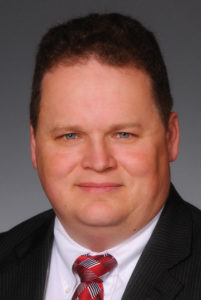By Steve Brawner, © 2018 by Steve Brawner Communications, Inc.
A lot can happen in two years, but in November 2020 Arkansans could vote on reforming the act of voting itself.
That will be the case if ranked choice voting supporters can craft a proposal, get it past the attorney general, raise money, collect signatures, and survive the usual court challenges.
Otherwise known as “instant runoffs,” ranked choice voting lets voters rank candidates in order of preference, rather than simply checking the box next to one. Arkansas already uses this system for overseas ballots.
It’s kind of complicated. In Maine, which recently adopted the system, candidates listed first on a majority of ballots win the election. If no candidate does, the one listed first the fewest times is eliminated, and the candidates listed second on those ballots are awarded those votes. The process continues until one candidate reaches a majority of first-place votes.
Why go to all that trouble? The main reason is the current, winner-take-all system virtually guarantees a two-party duopoly. Voters feel they must vote for the elephant to keep the donkey from winning, or vice versa, even if they would prefer the giraffe or porcupine. With ranked choice voting, they can vote their conscience first and then vote what they consider the lesser of two evils second.
Another advantage is that it eliminates runoffs, which often attract a low voter turnout. Also, in a race with numerous candidates, it reduces the chance that a fringe candidate slips through while the others – more acceptable to most people – split the rest of the vote.
The system means the candidate with the most first-place votes might not win. In a Maine congressional race this year, the Republican won the initial count, 46.1 to 45.9 percent, while third party candidates split the other 8 percent. Because ranked choice voting went into effect, the Democrat then won by 1 percent.
It’s not a coincidence that ranked choice voting has taken hold in Maine. That state has a history of multi-candidate races and elections won by candidates with a minority of the vote. The current, controversial governor won twice that way.
But the transition wasn’t exactly a smooth one. After Maine voters approved ranked choice voting in 2016, Republicans and other opponents appealed to the courts to stop it, got it blocked for state elections, and then Republican legislators along with some Democrats passed a law to delay it and really to kill it. In response, Maine’s voters passed a “people’s veto” in June 2018. The politicians finally relented, though reluctantly. When the governor added his signature to certify the above congressional election, he wrote the words “Stolen Election.”

Nate Bell would be among the leaders of the effort in Arkansas. Bell is a former Republican House member from Mena who became an independent and has been highly critical of President Trump.
He’s now the state director of Stand Up Republic. That’s a reform group led by Evan McMullin, who ran as an independent conservative alternative to President Trump in 2016. In Arkansas, he collected 13,176 votes, or 1.17 percent. Bell was a big supporter of McMullin.
Bell, who previously opposed ranked choice voting, is confident the effort will be “amply funded” through money raised in and out of state. He said a coalition of supportive political reform groups is forming and that Arkansas is a priority state. He’s thinking about a budget of $400,000. Ranked choice voting would apply to the general election, not party primaries.
Predictions? Who knows? Getting on the ballot is hard. Ranked choice voting is more complicated than the current system. If voters don’t understand something, sometimes they just vote no. Members of the political establishment will oppose it. They won’t want to change the rules that established them.
On the other hand, in the past few years, Arkansans voted overwhelmingly for Republicans at the state and national level, but they also voted to raise taxes for highways, legalize medical marijuana and casinos, and raise the minimum wage.
In other words, you can’t put Arkansas voters in a box.
Maybe they just like having choices.
Many other voting methods besides the instant runoff system described in this article could be used by Arkansans to replace the awful vote-for-one method we now use. These include Borda count, Nauru, Bucklin, Condorcet, approval, and range voting, and there are various versions of each of these.
All voting methods have inherent flaws, but this instant runoff method, referred to in recent years by its proponents as ranked choice voting (RCV), may be the worst to use! It can still suffer from spoilers, does not always elect a majority winner, and can sometimes discourage voters from ranking their favorite candidate first.
It suffers from other inconveniences, too. Since it is a ranking method, allowing voters to rank very many candidates creates almost impossibly complicated ballots. If no candidate gets a majority in the first round, votes cannot be tallied at separate precincts, but must be sent to a central location for counting. Late precincts cannot be added once counting has started. Worse yet, it may be the least effective at reducing the crushing dominance of the major two parties.
It makes little sense for Arkansans to go through this arduous, inconvenient and expensive transition only to end up with the worst of all alternatives for replacing the very flawed system we now use. Please consider one of the rating methods, which are approval, range or STAR voting.
Interesting comments, Brian. I will consider the alternatives. We both agree that the current system isn’t acceptable.